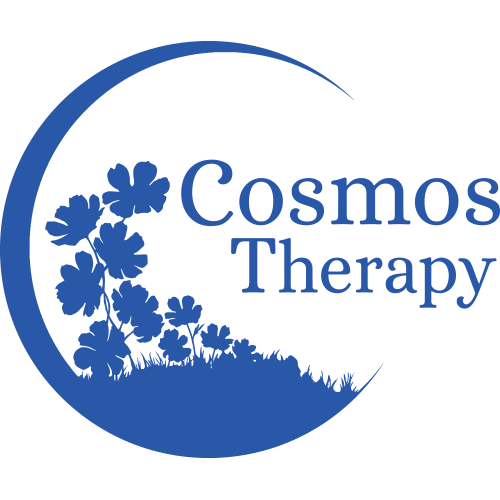Amid the COVID-19 pandemic and a quickly-evolving world that continues to rely even more heavily on user-friendly technology, professionals in the industry are feeling increased demands, and may be without much-needed support
Burnout is a well-known problem in tech and programming
If you work in IT you might be all-too-familiar with the word “burnout.” An unreasonable workload, stagnant compensation, lack of advancement opportunities, fierce competition for talent, and various levels of toxicity in workplace culture all may be contributing factors to tech’s 13.2% turnover rate. According to a report from LinkedIn in 2018, this is the highest in any sector of the business industry.
No matter what your position, tech is a demanding and rapidly-changing industry that frequently requires repeated re-configuration of components, complex problem-solving, and long hours in front of screens. For these reasons, tech professionals may already be more vulnerable to experiencing mental illness at a higher rate than the general population. And the current COVID-19 pandemic certainly doesn’t help.
Sure, working in IT may more naturally lend itself to working from home than other sectors, but the CDC suggested in October 2020 that the ripple-effect transitions that result from working from home often lead to more stress, not less. Here are the days of the 5 o’clock headache. Video chat fatigue is definitely a thing. And virtual interactions with your coworkers can hardly be considered substitutes for meaningful connection with another person.
Talking about mental health can be difficult
So, burnout has likely entered your vocabulary, and you might even be aware of its heavy costs on productivity. But even in 2021 mental health stigma is alive and well in many areas, and fewer people may be aware of how to actually recognize it or address it effectively, or with the sensitivity it deserves.
Though it isn’t an official mental health diagnosis, I would best describe professional burnout as: a continuous dissatisfaction with, or lack of fulfillment in the work you provide, leading to significant feelings of inadequacy and/or reduced capacity for performance in one or more areas of your life.
More than just not liking work
That’s right, burnout can easily go beyond just loathing your job. Even though these feelings may be due to factors beyond your control and weaknesses in workplace culture, including a lack of inclusivity, and little respect for work-life balance, burnout can have a tremendous cost on your individual health and well-being. Hopefully this information may help clue you in to when it’s time to seek the support of a therapist, beyond just sprucing up your resume and looking for an employer where your work and boundaries are more appreciated.
What to look for
Signs and symptoms of burnout can include the following:
Persistent fatigue
There’s no question that when you’re swinging 50+ hour weeks, you’re more likely to be tired. This is typically a multifaceted issue: Are you drinking enough water? Getting enough nutrients in your food? Giving your eyes a break from a screen? Getting sufficient fresh air, or moving your body enough? Connecting with other people outside of work? It’s tough to isolate all of these factors so that you can really get to the bottom of what’s causing you to feel like it’s always nap-time.
A good self-check for burnout might be to ask yourself: Am I able to feel refreshed after a restful weekend, or engaging in activities that make me happy? If the answer is mostly no, it might be time to consider seeking help from a professional.
Irritability/Anger
I personally don’t feel this one is emphasized enough, even in the mental health community. A lack of fulfillment in how you’re spending your work week takes its toll on your mood. Frustration, irritability, and even resentment are completely natural responses when you’re missing the overall feeling that your efforts are worth your time.
Even if you’re “holding it together” at work, there is high potential for these feelings to carry over into your personal life without careful and deliberate separation.
Are you getting snippy with your family, friends, your partner, or your children? Do you need to “escape” from these interactions more, when they once seemed to fill you up? Therapy can offer a nonjudgmental space to help you understand sources of irritability better, grow your skills for coping and self-care, and prevent you from feeling guilty about blowups.
Low mood or motivation, or excessive worry
There’s no question that folks with burnout have lost that spark or excitement about their work, but how it shows up varies by individual. You might notice yourself disengaging from others, snoozing that morning alarm as much as possible, and spending the weekend in your PJs.
But for some people, those same neural pathways responsible for healthy stress simply go into overdrive. This can manifest as anxiety, or the inability to mentally put tasks down, even when you’re not trying to think about them.
It might be 4 AM but your brain is still thinking about that deadline, or if you responded to that client email, or are worried about what kind of mood your boss will be in tomorrow. Whether you need more “gas pedal,” or “brake pedal,” the right therapist can offer you strategies for support.
Trouble sleeping
While many individuals suffering from burnout might feel tired often, they can also simultaneously experience sleep disruption. This includes difficulty falling asleep, staying asleep, or early morning wakefulness, which is considered waking up at least two hours before you intended.
A good night’s sleep is an essential part of restoring our brain functioning and without it, we have a hard time processing new information and focusing the next day. An unrested brain can quickly become a frustrated brain, which can lead to low performance, decreased capacity for problem-solving, more frustration and distress…and more poor sleep.
Sometimes sleep issues can become limiting enough to elicit a targeted, behavioral approach in therapy called CBT-I, or Cognitive-Behavioral Therapy for Insomnia, which helps reset nervous system back into a healthy sleep routine. And though pharmaceuticals can be helpful tools to get some rest, it’s important to know that medication can easily just mask symptoms instead of addressing the root cause.
Increased substance or alcohol use
If you’re finding yourself pouring a glass of wine, beer, or a cocktail more often, taking more smoke breaks, or relying on other substances to fall asleep, blow off steam, relax, or escape from the daily grind, this could be your nervous system telling you it’s on overload. A therapist who specializes in substance use is likely your best resource for staying informed about risks of what you’re putting in your body without embarrassing or shaming you.
Reach out, and check on others
Burnout is a common issue in the IT field, but it’s very treatable. If you see yourself in these words, reach out for support. And if you’re concerned about a coworker, they might appreciate you checking in. Be curious and respectful, and honor them if they don’t want to talk. You might break the ice by saying something like “I’m feeling tired today, how are you feeling?” You’re not alone, and there are other options beyond just dreaming about quitting your job.

